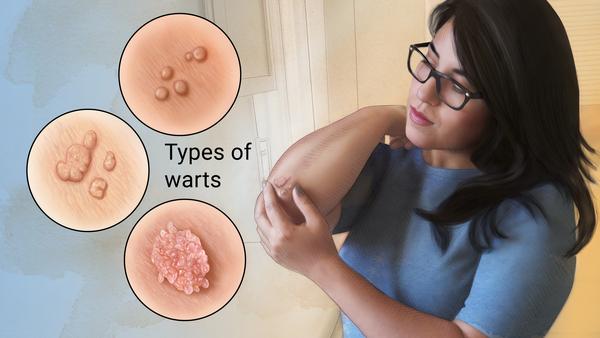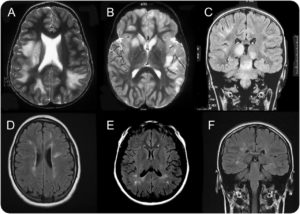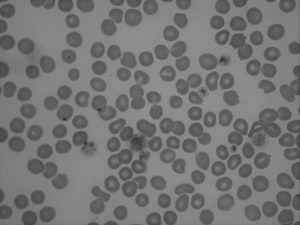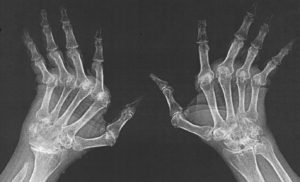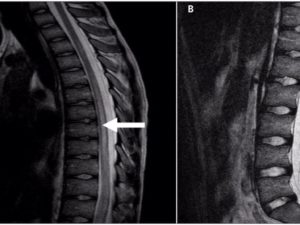What is Human Papillomavirus?
Human Papillomavirus (HPV) is a group of more than 150 related viruses, each corresponding with a unique number to denote the HPV type. The CDC estimates that 14 million people are infected with HPV each year. Although most cases of HPV can be resolved without medical intervention, in some instances the virus can lead to more significant complications, like cancer.
HPV is transmitted through intimate skin-to-skin contact, and can be passed even when a person does not show any signs or symptoms of infection. In some cases, symptoms present years after infection, making it difficult to pinpoint the date the virus was contracted. HPV is so common that the majority of men and women become infected at some point in their lives.
While some who suffer complications with HPV experience only genital warts, some HPV types can also lead to cancer. In both men and women, HPV can lead to cancer of the mouth/throat, as well as the anus/rectum. It also is possible for men to develop penile HPV cancer. In women the virus can lead to the development of cervical, vaginal, and vulvar HPV cancers.
Who should receive the HPV Vaccine?
The CDC recommends children receive the HPV immunization at age 11 or 12, with six to twelve months in between doses of the vaccine. For children above the age of 14 who have not received the vaccine on schedule, three doses are recommended over a 6 month period.
The HPV vaccine is recommended for young women, homosexual and bisexual men, transgender adults, and those with certain immunocompromising conditions (including HIV) through age 26. The vaccine is recommended for heterosexual men through age 21.
Can the vaccine treat an existing infection?
Unfortunately the HPV vaccine cannot treat existing infections. It can, however, offer protection against other strains of HPV. Patients with a history of genital warts (most often caused by HPV type 6 and type 11) may not be infected with both types of HPV, and so may acquire protection from the vaccine against types not yet acquired.
If you have an HPV infection, consult a medical professional to determine what tests or treatments you may need.
What are the side effects?
Common, mild side effects include pain at the injection site, fever, dizziness, muscle or joint pain, and nausea. On rare occasions, patients may experience an allergic reaction to the vaccination. Individuals with severe allergies should consult their physician prior to vaccination.
What injuries are associated with the vaccine?
Claims have been filed in the National Vaccine Injury Compensation Program involving the following injuries after receipt of the HPV vaccine:
Acute Disseminated Encephalomyelitis (ADEM)
Acute Disseminated Encephalomyelitis (ADEM) is an inflammatory disease of the central nervous system that attacks myelin – the insulating sheath that encapsulates nerve cells. Myelin allows for the efficient transmission of electrical impulses along nerve cells, which can be disrupted or lost when damaged.
The onset of ADEM is generally rapid and intense, and typically begins with encephalitis-like symptoms that can be either mild (i.e. fever, fatigue, headache) or severe (seizures, coma). The affected individual can also experience additional neurological symptoms, including weakness (sometimes to the point of paralysis), confusion, drowsiness, vision problems, and tingling or numbness.
Guillain-Barré Syndrome (GBS)
Guillain-Barré Syndrome (GBS) is a rare autoimmune disorder in which a person’s own immune system mounts an inflammatory response and causes damage to his or her peripheral nerves. This can affect the sensory, motor and autonomic nerves.
Symptoms often come on rapidly and can include sensory disturbances in the extremities (hands, arms, feet and legs), muscle weakness and loss of reflexes. In some cases, this muscle weakness can lead to paralysis. In rare circumstances, patients can experience difficulty breathing that leads to respiratory difficulties.
Idiopathic Thrombocytopenic Purpura (ITP)
Idiopathic Thrombocytopenic Purpura (ITP) is a blood disorder that causes low platelet levels, leading to easy and excessive bleeding and bruising, and can be chronic or acute. Although definitive causes for ITP have not been identified, the disorder often begins following vaccination or a viral illness.
The treatment for ITP depends on the symptoms, age of the patient, and platelet count. In some patients, ITP resolves on its own without any treatment. However, for symptomatic patients, treatment can include medications such as corticosteroids, IVIG, and others. If medication is not effective and the ITP is severe, a splenectomy may be performed. While successful in restoring platelet levels for many patients, this option permanently increases the susceptibility to infection.
Multiple Sclerosis (MS)
Multiple Sclerosis (MS) is a disorder of the central nervous system that can affect the brain and spinal cord. In MS, the immune system attacks nerve fibers and destroys the myelin sheath; an insulating layer imperative for the conduction of nerve impulses. This inflammatory process disrupts communication within the central nervous system, and between the central nervous system and other parts of the body.
Symptoms of MS vary widely, but some common symptoms include numbness or tingling of the face, body or extremities; impaired coordination or problems with gait; vision problems; pain; fatigue; and dizziness, among others. Most people who suffer from MS have a relapsing-remitting course. The onset of new symptoms may develop over a few days or weeks and then improve partially or completely.
Rheumatoid Arthritis (RA)
Rheumatoid arthritis (RA) causes inflammation of the joint lining (i.e. the synovium), resulting in pain, stiffness, redness, swelling, and warmth of the affected joint. The joint may also lose its shape and suffer restrictions in movement. RA commonly affects the small joints in the hands, feet and wrists, as well as the joints in the elbows, shoulders, hips, knees and ankles. Although acute onset of symptoms is possible, symptoms often occur insidiously and appear over a period of time.
Rheumatoid arthritis (RA) is an ongoing disease, with active periods of pain and inflammation, known as flares, alternating with periods of remission, when pain and inflammation recede. While RA can affect many different joints, in some people experience its effects in parts of the body other than the joints, including the eyes, blood, the lungs, and the heart.
Systemic Lupus Erythematosus (SLE)
Systemic Lupus Erythematosus (SLE) is an autoimmune disease characterized by inflammation of various tissues throughout the body. SLE occurs when the body’s immune system attacks its own tissues and organs, causing inflammation.
Because the disease can affect different systems within the body, clinical symptoms of SLE vary. Depending on which tissues SLE affects, paitents may experience joint pain and swelling, fatigue and exhaustion, fever, skin lesions, headaches, shortness of breath and/or hair loss. Many people with SLE experience periodic “flares” when symptoms become worse for a period of time.
Transverse Myelitis (TM)
Transverse Myelitis (TM) is a neurological disorder caused by inflammation in the spinal cord. This inflammation leads to damage or destruction of myelin, the substance that covers and insulates nerve cell fibers. When myelin is damaged, communication between the nerves within the spinal cord and the rest of the body suffers, and is often interrupted.
National Vaccine Injury Compensation Program
Vaccines are an important part of public health, working to save lives by preventing disease. Most of the time, vaccines are administered without any serious problems. Like with any medication, however, there is a risk of side effects, ranging from mild to serious.
For this reason, the US government created the National Vaccine Injury Compensation Program (NVICP), a “no-fault” alternative to the traditional legal system. Petitions can be filed by any individual, at any age, after developing an injury believed to be a result of a covered vaccine, if jurisdictional requirements are met.
Conway Homer, P.C. is the most experienced vaccine injury law firm in the United States. We represent clients from all 50 states and have advocated for landmark cases that have shaped the Vaccine Program and made it friendlier and more generous to those individuals who suffer from vaccine injuries.
To get in touch with our dedicated team, click here for a free consultation.


